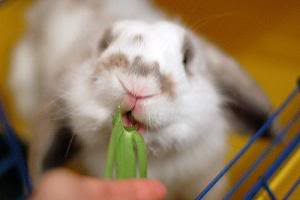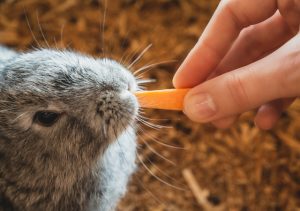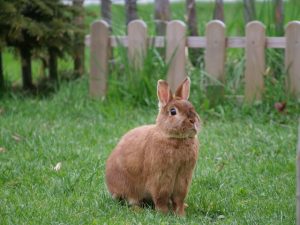
Celery is a kind of vegetable that has a rich, savory taste and is usually used as a base in stocks and soups. Aside from vitamins C and fiber, it is a good source of folic acid, potassium, calcium, and vitamins B1, B2 and B6.
Celery also contains phytochemical compounds. Studies have shown that these phytochemicals are effective in cancer prevention, lowering blood pressure, and possibly helpful in alleviating cases of migraines. With these facts, celery is considered to be a “superfood” and should be incorporated regularly to human diets. But can rabbits eat celery?
Can I Give My Rabbit Celery? Yes, but feed variety of vegetables as well
Rabbits love to nibble on different vegetables, including carrots celery. Celery is safe for your bunny but it is recommended to start them off with small amounts. You can gradually increase the amount over a few days if your pet doesn’t show signs of stomach upset or diarrhea. If celery causes digestive system upset or diarrhea, immediately stop feeding him with it.
Although celery is good for your pet, like any other food, it must be given in moderation to avoid digestive problems. Also, it is suggested to cut the celery into one-inch sections. This is to avoid fiber-like strands in getting caught in your bunny’s teeth.
Bunnies are herbivores by nature. Thus, their primary diet should consist of leaves, hay and grass. In terms of feeding your pet vegetable, it is best to always have variety. Varied vegetables means a good mix of nutrients.
Dark leafy and root vegetables are great for your rabbit’s health as such will supply the necessary nutrients such as Vitamin A. Besides celery, rabbits also love carrots, clover, collard greens, broccoli leaves and stems.
Regular feeding of fresh greens is vital to a healthy rabbit diet. However, ensure to thoroughly wash any kind of vegetables first to remove any pesticides or chemical fertilizers.
The foundation of a good rabbit diet involves quality pellets, fresh hay, water, and fresh vegetables. Anything other than these essentials should only be considered as treats, and therefore must be given in limited amount.
Giving your bunny fresh Timothy hay is a great way to provide him with low energy dietary fibers. It is also suggested to feed your rabbit with a mix of grasses for optimal health. There are many grass farms that focus in growing grass hay for rabbits. These grasses are healthier than the average grass as they are free of pesticides.
Moreover, look for hay that is dark green in color, for such are high in nutrients. Avoid feeding your pet hay with dark brown color. This color could mean mildew presence, which is not good for your pet’s health. Also avoid giving him hay that is dusty, as it is bad for his health as well.
The smell of the hay should be sweet or smell like a freshly cut yard. This guarantees freshness in the grass.
Feeding your bunny with pellets is most important in his early stages of development. Pellets are highly concentrated in nutrients, thus, it will help ensure proper weight gain. Quality pellet foods for rabbit contain a minimum of 18 percent fiber. As your pet reaches maturity, pellet foods should be reduced and replaced with higher quantities of hay and fresh vegetables. Overfeeding your bunny with pellets can lead to obesity.
Remember that rabbits must be fed with pellets that are formulated according to their age. For instance, baby bunnies should be provided with extra minerals such as phosphorous and choline. They need high energy diets, so their pellets should be high in fat and fiber but still low in starch. On the other hand, adult rabbits must be given less energy and low protein diets.
However, many rabbit pellets available these days have too much protein and grain. These ingredients could cause bloating and would make your rabbit’s urine to smell like ammonia. When shopping for pellets, choose the ones that are soy free and with little or no grain.
As early as three months of age, you can start to offer vegetables to your rabbit. Just introduce him to new vegetables one at a time. Eliminate any food that that causes soft stools or diarrhea.
Rabbits enjoy eating a wide variety of different herbs and vegetables. As long as it is proven safe and healthful for your pet, you can experiment and see which ones your bunny likes best. As owner, you must ensure that you provide your pet all the necessary fiber, nutrition and vitamins he needs.





